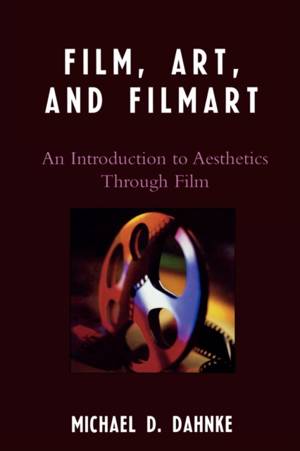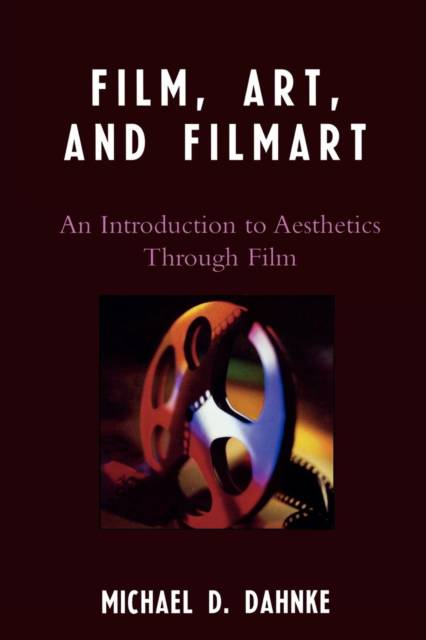
Wil je zeker zijn dat je cadeautjes op tijd onder de kerstboom liggen? Onze winkels ontvangen jou met open armen. Nu met extra openingsuren op zondag!
- Afhalen na 1 uur in een winkel met voorraad
- Gratis thuislevering in België vanaf € 30
- Ruim aanbod met 7 miljoen producten
Wil je zeker zijn dat je cadeautjes op tijd onder de kerstboom liggen? Onze winkels ontvangen jou met open armen. Nu met extra openingsuren op zondag!
- Afhalen na 1 uur in een winkel met voorraad
- Gratis thuislevering in België vanaf € 30
- Ruim aanbod met 7 miljoen producten
Zoeken
Film, Art, and Filmart
An Introduction to Aesthetics Through Film
Michael D Dahnke
Paperback | Engels
€ 84,95
+ 169 punten
Omschrijving
This work is a basic introduction to aesthetics and covers the major theories of art, while referring to various filmic examples to illustrate the complex ideas related to the philosophy of art. In addition, it addresses film itself as an art form, analyzes film studies, and discusses film's ambiguous cultural/artistic position. The overarching theme of the book is the most basic aesthetic question: What is art? That eternal and critical question is explored by addressing representation, formalism, and expressivism, three classic aesthetic theories. Film, Art, and Filmart begins by focusing on Plato, including a look at the issue of censorship as it is raised in his Republic. Then formalism is discussed via Kant, and Roger Fry's and Clive Bell's theory of Significant Form. Expressivism is dealt with by utilizing views by Leo Tolstoy and R.G. Collingwood. Contemporary issues in aesthetics are illuminated with George Dickie's theory of art, while also examining the cognitive theories of Nelson Goodman and Martha Nussbaum. The final chapter opens definitional structure up a bit by investigating the concept of freedom as integral to art and by straying from the largely analytic focus of the rest of the book through analysis of continental philosophers, such as Hegel, Nietzsche, and Foucault.
Specificaties
Betrokkenen
- Auteur(s):
- Uitgeverij:
Inhoud
- Aantal bladzijden:
- 140
- Taal:
- Engels
Eigenschappen
- Productcode (EAN):
- 9780761837213
- Verschijningsdatum:
- 30/04/2007
- Uitvoering:
- Paperback
- Formaat:
- Trade paperback (VS)
- Afmetingen:
- 152 mm x 228 mm
- Gewicht:
- 222 g

Alleen bij Standaard Boekhandel
+ 169 punten op je klantenkaart van Standaard Boekhandel
Beoordelingen
We publiceren alleen reviews die voldoen aan de voorwaarden voor reviews. Bekijk onze voorwaarden voor reviews.











